By James Bryce
IN the early hours of a Friday morning in late September the lives of scores of expats and Spaniards alike, were changed forever.
Persistent rain had left waterways throughout parts of Andalucia dangerously close to bursting point and as dawn broke, so did the river banks.
Cars were washed away and properties consumed by torrents of water up to two metres deep as residents were forced to flee their homes.
The devastation left behind by the floods caused thousands of euros of damage which could take years to recover from.
But far from being an isolated incident, the floods – the worst in Andalucia for a decade – are just the latest example of extreme weather events to affect Spain.
Barely a month before the rain, Malaga suffered what officials described as ‘the worst fires in living memory’.
But while this was found to have been caused by a bonfire, many others across Andalucia were due to the weather, with a total of over 12,000 hectares destroyed by fire in Andalucia this summer, an area over six times bigger than in 2011.
It represented the worst blazes to affect the region since 2004 and coincided with extensive fires in other Spanish regions, including Valencia, Cataluna and Tenerife.
But is the adverse weather simply part of a natural cycle or is it evidence of a growing trend of extreme weather events triggered by the effects of climate change?
While some of the fires have been blamed on arsonists, the almost unanimous belief of the world’s leading scientists is that the latter is responsible.
And while global warming is a worldwide concern, it is a widely held belief that Spain is among the countries most affected by the phenomenon.
A report published by environmental group Greenpeace in 2009 stated that Spain is more affected by climate change than any other country in the EU.
It argued that sea levels around Spain are rising by 3mm each year and that the country will be affected by average temperature increases of 1.5 degrees by the end of the century, more than double the global average.
Some regions are even predicted to rise by as much as six degrees by the end of the century.
The European Environment Agency (EEA) has also expressed its concern for Spain, claiming the country is highly vulnerable to climate change.
Among the adverse effects predicted by the EEA include reduced water resources, erosion, and human health issues related to extreme weather.
Most notably, it states that it expects Spain’s beaches to shrink by an average of 15 metres by 2050 due to rising sea levels – an event which could have serious consequences for the tourism industry.
The threat of global warming has also caused concern within Spain’s €2 billion wine industry, with rising temperatures forcing producers to move to the cooler climes of the Pyrenees.
But even in the mountains there is no escaping the effects of climate change.
Spain has lost 90% of its glaciers in the past century, with the remaining ice expected to disappear completely within a few decades, according to the environment ministry.
While the Pyrenees were covered by 3,300 hectares of glacier when records began at the end of the 19th century, now only 390 hectares remain.
Overall, Europe’s glaciers are believed to have shrunk by a quarter since 2001, something which could lead directly to increased drought as rivers dependent on seasonal ice-melt dry up.
The damaging effect of drought is seen as one of the key factors in the spread of a process known as desertification – another process currently afflicting Spain.
Desertification is the process of fertile land being transformed into desert, and while a number of factors contribute to this, drought is arguably the most significant.
The problem is deemed to be so serious that the United Nations has held a number of conferences to discuss the issue and warns that 6% of Spain’s soil has already eroded irreversibly.
Spain’s environment ministry adds that nearly one-third of the country faces a ‘significant risk’ of desertification.
But while all of these factors are clearly huge problems which need to be urgently addressed, what are the solutions, and how are they been implemented?
One of the ways in which climate change is being tackled in Spain is by adapting to it through the promotion of a more self-sufficient lifestyle.
As part of this process, Spain established the National Plan on Adaption to Climate Change in 2006, to provide a framework for tackling the issue.
The cities of Barcelona and Vitoria-Gasteiz have also signed up to an EU-funded adaption strategy aimed at helping cities become better equipped to deal with climate change.
Among the other cities to sign up to the initiative are Birmingham, Stirling and locally, most notably Gibraltar.
The Rock’s government is busy promoting its green credentials and recently received ringing endorsements from prominent environmental campaigners as the host of a Thinking Green conference.
Former US Vice President Al Gore told the audience during his speech that Gibraltar had an opportunity, through its steps to tackle climate change, to become a role model for the world.
Meanwhile Juan Verde, a renewable energy advisor to the Obama administration, went one step further by urging the Rock to become fully sustainable.
Verde told the conference: “I think Gibraltar is small enough to become fully sustainable.
“You can’t do that in America because it would take decades, but here you could do it in a matter of years.”
At a more local level, a growing movement known as transition towns has been set up to help communities find ways of reducing their carbon footprint.
Adoption of the idea is on the increase and led to a conference being held in Marbella last weekend.
“The Transition Town Movement is a campaign to create more sustainable communities which reduce their carbon footprint and are less reliant on fossil fuels,” conference organiser Alejandro Cesar Orioli told the Olive Press.
“The movement intends to equip people with the skills to respond to the changing circumstances which diminishing fossil fuels will cause.”
Transition towns may only be one small piece in the jigsaw, with much more significant change required at government level in order to make a serious difference.
But they say even the longest journeys begin with a small step, and it’s clear some people in Spain have already taken it.
Even if that is little consolation to those who experienced first hand the effects of climate change, on that unforgettable Friday morning in September.

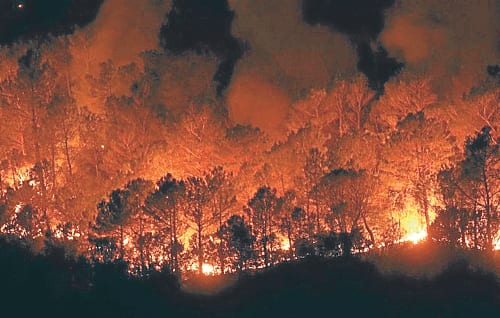



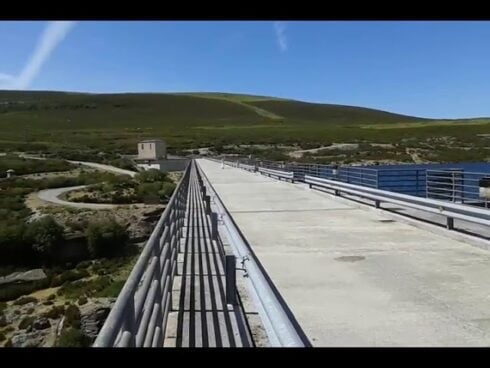

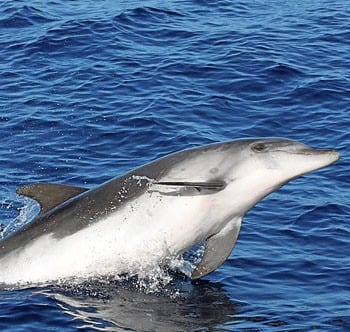
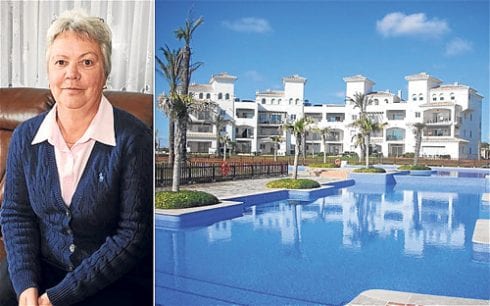
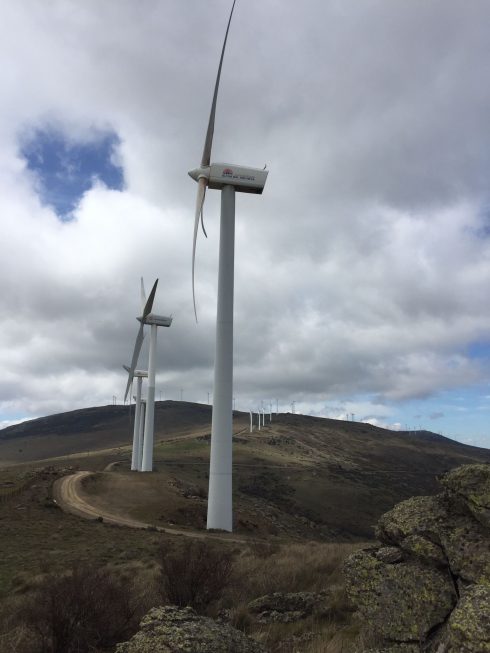


What has the recent fire in Malage, which was caused by a garderner’s bonfire, got to do with global warming? Answer, nothing. The bonfire was the trigger here, James.
Hi Fred,
I’ve edited the sentence to clarify that the Malaga fire was not due to natural causes, as it may have implied before. However, I think the reference to arsonists a few sentences below is sufficient acknowledgement that I’m not trying to attribute all of Spain’s fires to climate change.
James
Hmm, how about “It argued that sea levels around Spain are rising by 3mm each year”. Does this mean that *only* the sea around Spain rises? lol. Sorry, but this article is poorly written.
Read the article. It is about Spain and Gibraltar, and nowhere else. It is not poorly written at all.
Calm down Tony, you’ll be telling us next that you are different from every other human being on the planet. lol.
the fact is that the world has been cooling the last 12 years…look at the facts, BEFORE nasa “corrects” their data..( to fit the computer-models)…the correction is even shown on their site. is even on their site. Most of th scienist who agree on global warming, are gouvernement payed…check out the independent professors or scientists..
FRED just tries to make people angry on this site (a TROLL in other words)
PLEASE IGNORE THIS PERSON! (using lol.. please…)
Dave, the only person getting in a state here is you. All I was saying is that sea levels don’t just rise around one country – they rise around the world. Also, the recent fire in Malaga was triggered by an out of control bonfire, not by global warming. If you can correct either of those statements then I await your reply. lol.
Of course sea levels are rising in many other countries. Any fool who reads, listens to or watches the media knows that.
However, this article is about Spain and Gibraltar, not any other countries. It is not badly written, just poorly read.
Tony, do tell us what an out of control bonfire has got to do with global warming?
“Even if that is little consolation to those who experienced first hand the effects of climate change, on that unforgettable Friday morning in September.”
What? This is sensationalist nonsense. Weather and climate are not the same thing James.
Fred, I’m clearly not suggesting that weather and climate are the same thing, but I don’t think you can argue that one is not influenced by the other. A warmer atmosphere has more moisture in it, which increases maximum rainfall, leading to a greater risk of flooding. On that basis, as global temperatures rise, so does the likelihood of unusually severe weather events such as the Malaga floods in September becoming the norm.
I repeat “However, this article is about Spain and Gibraltar, not any other countries. It is not badly written, just poorly read.”
That includes the Comments section.
James, your comments are a total guess, are they not? Tony’s car runs on fusion btw. He’s unique. lol.
This Troll Fred cannot even spell the words Malaga or Gardener’s on his opening post!
He’s burning like an out of control bonfire/troll ROFL ROFL ROFL A typical WUM is he.
Climate denialism. Because dealing with change is just too difficult…
The beach in rio Verdi is eroding . The wall on the promenade has come down, the sea is coming right up to bars and the fronts of houses in the summer…can you please clarify why this is happening. I heard that the damns were opened , have I need to worry about my property? Can you please help with info
Thank you